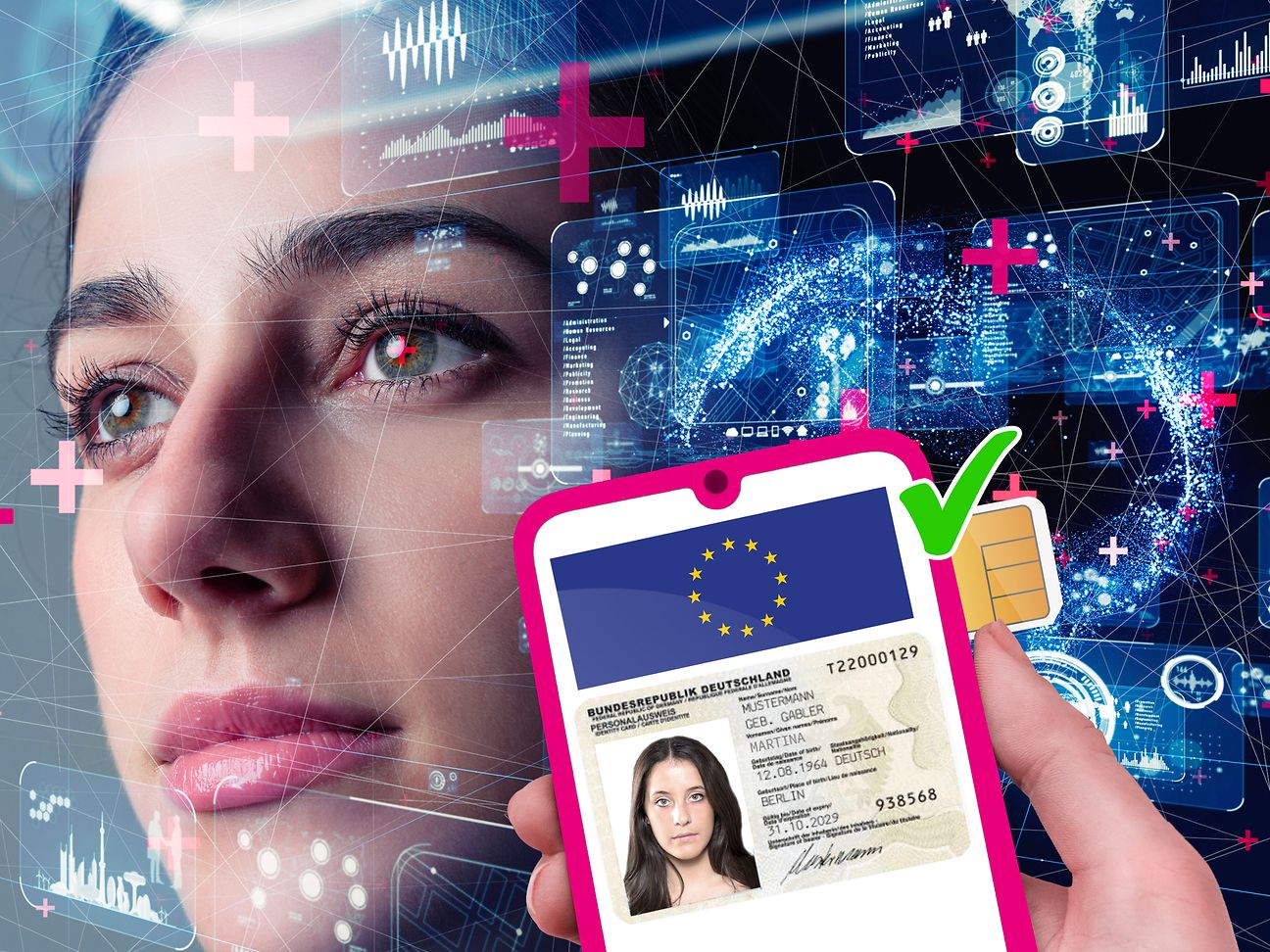

Telekom believes in digital identities
Who is who in the web? If that's not clear, nothing works in the world wide web. No one purchases online. No one submits applications online. No access to confidential data. Lack of trust is still the biggest obstacle to digitization. The EU and the German government want to change this with the so-called digital identities.
Their introduction is certain. A new market for identity service providers is emerging. This is a strategic topic for Telekom.
The Group understands itself as a pioneer and driver of digital identities. Therefore, Telekom is a founding member of the Open Wallet Foundation. The joint project aims to ensure that different digital identities such as the EU's Digital Identity Wallet are compatible. The Linux Foundation is in charge of the project. Industry partners include companies such as Accenture, Swisscom, American Express and VISA, as well as a number of companies from the ID and security industry. Around 20 non-profit organizations such as research institutes are also gathered under the umbrella of the OWF.
Barmer first Telekom customer for digital identities
Telekom secured Barmer as the first customer for digital identities in 2022. Other insurers are to follow. Together with Verimi,
Digital identities are applicable in many industries
In addition to health cards and patient records, digital identities are a topic in many other industries: Packing stations could be opened more easily with digital identities. Digital identities could replace time clocks and keys - whether they are used to lock offices or start cars. In the future, they will also help with hotel check-in and save time and effort when opening new accounts.


